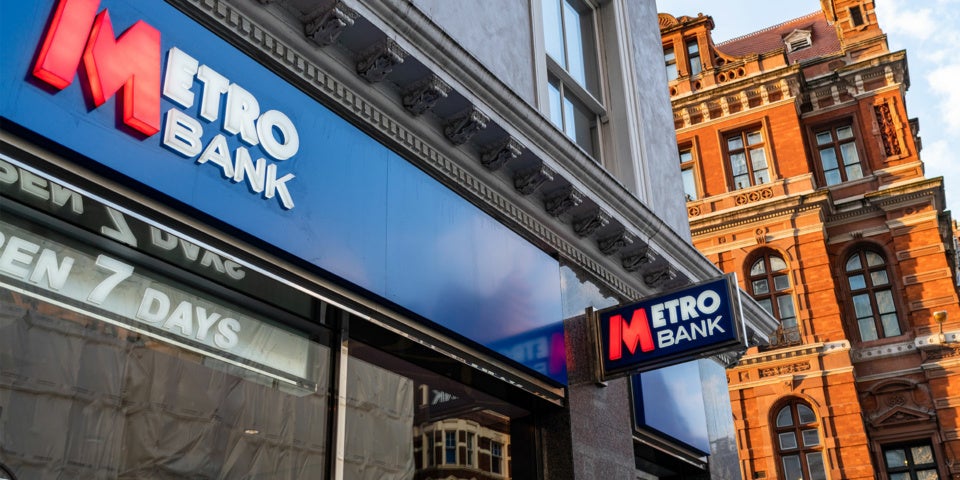
Metro Bank FY2020 posts a statutory pre-tax loss of £311.4m (2019: -£130.8m) reflecting a number of one-off items and remediation costs.
Total loans drop by 18% to £12.1bn while underlying revenue drops by 15% to £340.9m.
Ongoing margin pressure results in a 29-basis point drop in the net interest margin to 1.22%.
The reduced loan book results primarily from the sale of a £3.1bn residential mortgage portfolio last December.
But Metro Bank says that total net loans are forecast to increase in fiscal 2021.
Consumer lending remains at just 2% of the loan book. A marginal decline in H1 reversed in the fourth quarter. This follows the start of Metro Bank funded lending through its acquired RateSetter platform.
How well do you really know your competitors?
Access the most comprehensive Company Profiles on the market, powered by GlobalData. Save hours of research. Gain competitive edge.

Thank you!
Your download email will arrive shortly
Not ready to buy yet? Download a free sample
We are confident about the unique quality of our Company Profiles. However, we want you to make the most beneficial decision for your business, so we offer a free sample that you can download by submitting the below form
By GlobalDataNon-performing loans increase to 2.10% (2019: 0.53%). This is primarily driven by customers who have received temporary Covid-19 support measures and now require further forbearance support.
Metro Bank FY2020: other less positive metrics
Underlying net interest income drops by 19% year-on-year to £250.3m. Meantime, underlying net fees and other income drops by 5% to £86.3m.
And the cost income ratio soars to an eye-watering 143% in fiscal 2020 from 100% in the prior year. Metro Bank plans for further branch expansion are on hold. The UK challenger says it is committed to its existing network of 77 stores. But it plans no new stores beyond new openings in Bradford and Leicester in 2021. Future expansion is subject to review with no new branches planned in 2022 or 2023.
Metro Bank FY2020: highlights
Metro Bank reports 10% growth in customer accounts to 2.2 million. The bank posts a 11% rise year-on-year in deposits to £16.1bn. Moreover, the deposit mix improves as fixed term deposit accounts fall from 32% to 21%. At year-end 2020, current accounts comprise 39% of total deposits from 30% as at end December 2019. The cost of deposits for fiscal 2020 is 65 basis points, down 13 basis points compared to the prior fiscal.
“The pandemic has clearly impacted performance, leading to significant expected credit losses,” says Daniel Frumkin, Metro Bank CEO. “But our transformation strategy is firmly on track and we have accelerated initiatives to shift our asset mix, bringing higher yield and improving net interest margin, as evidenced in the second half.
“The purchase of the RateSetter platform has allowed us to enter the unsecured lending market. In addition, we have made progress against each of our strategic pillars. This includes the sale of part of our residential mortgage portfolio to further optimise our balance sheet, the launch of higher yielding products including specialist mortgages, and we have grown customer accounts to 2.2 million.”
The Metro Bank share price continues to recover and is ahead by 4% to £1.49. As recently as last November, the share price dipped to £0.58. Overall, over the past 12 months the share price is down by 16%.



